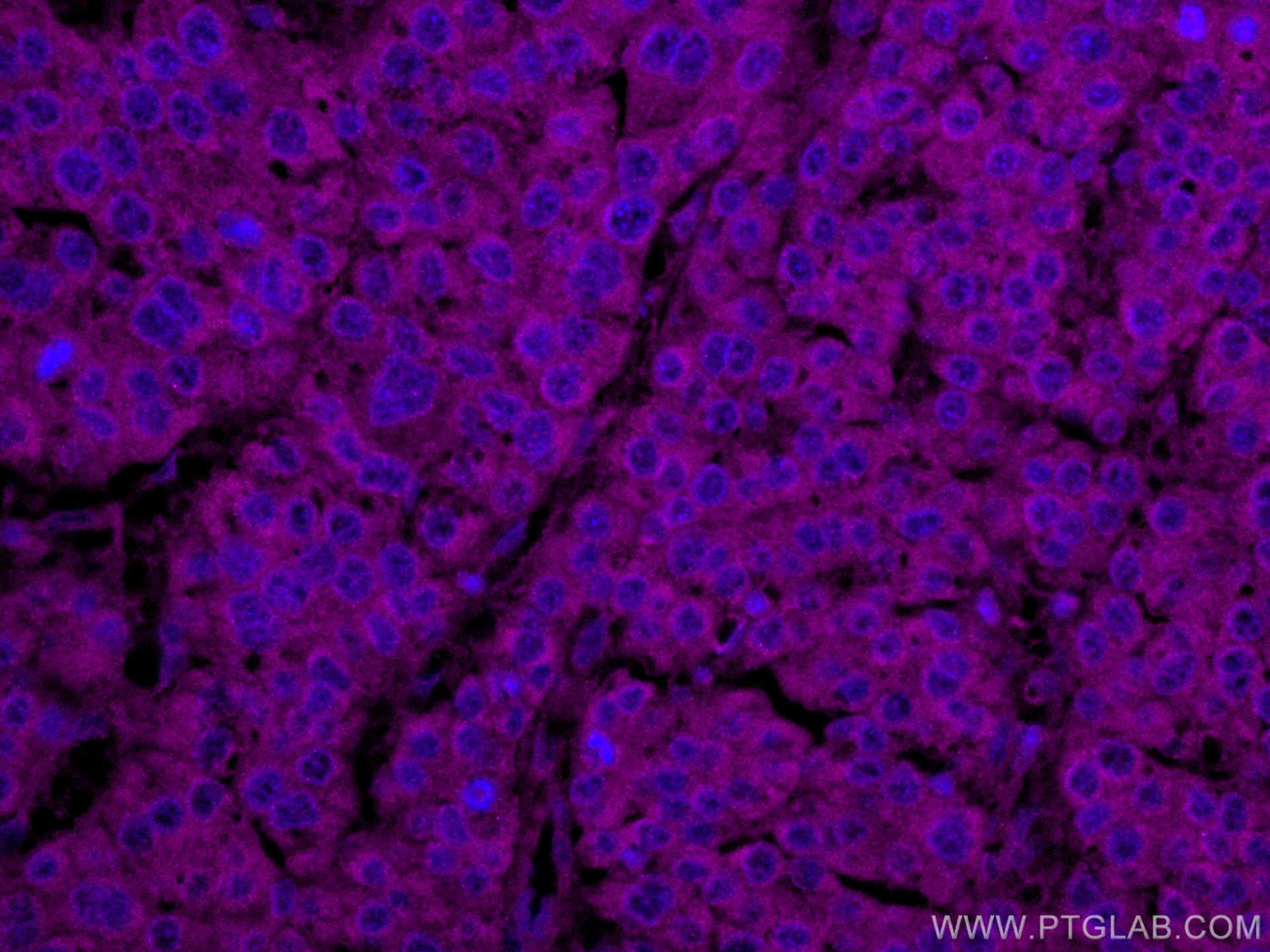- Featured Product
- KD/KO Validated
NCAPH Monoklonaler Antikörper
NCAPH Monoklonal Antikörper für IF-P
Wirt / Isotyp
Maus / IgG1
Getestete Reaktivität
human
Anwendung
IF-P
Konjugation
CoraLite® Plus 647 Fluorescent Dye
CloneNo.
3D2F11
Kat-Nr. : CL647-67655
Synonyme
Geprüfte Anwendungen
| Erfolgreiche Detektion in IF-P | humanes Leberkarzinomgewebe |
Empfohlene Verdünnung
| Anwendung | Verdünnung |
|---|---|
| Immunfluoreszenz (IF)-P | IF-P : 1:50-1:500 |
| It is recommended that this reagent should be titrated in each testing system to obtain optimal results. | |
| Sample-dependent, check data in validation data gallery | |
Produktinformation
CL647-67655 bindet in IF-P NCAPH und zeigt Reaktivität mit human
| Getestete Reaktivität | human |
| Wirt / Isotyp | Maus / IgG1 |
| Klonalität | Monoklonal |
| Typ | Antikörper |
| Immunogen | NCAPH fusion protein Ag27748 |
| Vollständiger Name | non-SMC condensin I complex, subunit H |
| Berechnetes Molekulargewicht | 741 aa, 83 kDa |
| GenBank-Zugangsnummer | BC024211 |
| Gene symbol | NCAPH |
| Gene ID (NCBI) | 23397 |
| Konjugation | CoraLite® Plus 647 Fluorescent Dye |
| Excitation/Emission maxima wavelengths | 654 nm / 674 nm |
| Form | Liquid |
| Reinigungsmethode | Protein-G-Reinigung |
| Lagerungspuffer | PBS with 50% glycerol, 0.05% Proclin300, 0.5% BSA |
| Lagerungsbedingungen | Bei -20°C lagern. Vor Licht schützen. Nach dem Versand ein Jahr stabil. Aliquotieren ist bei -20oC Lagerung nicht notwendig. 20ul Größen enthalten 0,1% BSA. |
Hintergrundinformationen
Non-SMC condensin I complex subunit H (NCAPH) is one of the three non-SMC subunits in condensin I, which belongs to a recently defined superfamily of proteins termed kleisins. Another two non-SMC subunits, CAP-D2 and CAP-G, share a highly degenerate repeating motif known as HEAT repeat. Some studies show that each subunit is essential for viability and plays an important role in mitotic chromosome architecture and segregation. In recent years, researchers found that the high expression of NCAPH was associated with poor prognosis in patients with non-small cell lung cancer and prostate cancer. Downregulation of NCAPH inhibited the proliferation, migration, and invasion of several cancer cells significantly. Moreover, NCAPH was involved in the regulation of mature chromosome condensation and DNA damage. These data suggest that NCAPH may be a key carcinogen involved in the development and progression of human malignant tumors. ( PMID: 28300828, PMID: 33311486 )
Protokolle
| PRODUKTSPEZIFISCHE PROTOKOLLE | |
|---|---|
| IF protocol for CL Plus 647 NCAPH antibody CL647-67655 | Protokoll herunterladen |
| STANDARD-PROTOKOLLE | |
|---|---|
| Klicken Sie hier, um unsere Standardprotokolle anzuzeigen |


